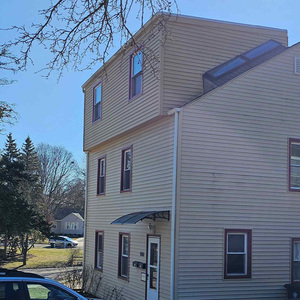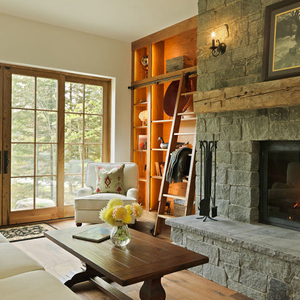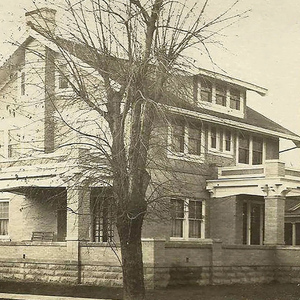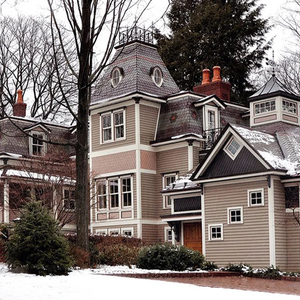*
I am adding new wood storm windows over existing double-hung wood
windows and was wondering if it would be worth using insulating
glass in the storm windows. An energy consultant in Oregon told
me he thought that using insulating glass would actually be less
efficient because circular air currents, within the dead air
space between the double-hung window and the new insulated storm
window unit, would speed up. The increased air currents would in
turn increase heat transfer through the combined window assembly.
Also, I live on a busy street and am wondering what type of
glazing would be best to use in the storm windows to inhibit
noise transfer. I believe it would be 1/4″ laminated glass; the
existing doulbe hungs have 1/8″ single pane divided lites.
Any thoughts? By the way, I live in Seattle



















Replies
*
I haven't ever heard of using insulated glass for storms. I've always heard that the best system was single pane windows with single pane storms.
The storm panel needs to be a different thickness to inhibit sound transmission. I don't think it needs to be laminated though... unless the storms are really large. Seek a recommendation from your local glass shop about the appropriate glass for the storms!
*Use ordinary double diamond glass, approx. 1/8" for the storms and buy some good heavy drapes to kill the street noise, or do what I did and move to the country. . . to eliminate the stree noise part of it. Or you could get really cute and mount your storms on an angle like they do to glass in recording studio sound booths. Tongue-in-cheek gif to follow.
*Dear Storm Window Installer,The story about increased air currents is very silly, but you know what they say about energy consultants from Oregon!Actually, storms are rarely sealed tight to the building because they tend to condense humidity excaping through the windows and build frost. So the compartment between the storm and the window is always flooded with outdoor air. This makes them a less effective measure for thermal and noise control. And pretty much negates any benefit of double glazing.Interior glazing panels, which can be gasketed into an air tight barrier work much better. And since the entire window assembly is bound to be filled with air passages, Pat's idea of drapes may be your best bet for street noise.Quietly, Fred
*Having wood storms myself, I have but one word of caution: Don't make them any heavier than they have to be. The extra weight will haunt you every time you have to change them.
*Dear Fred:Thanks for your comments. Any idea on where to go for custom interior glazing panels?In search of quiet, Bil
*Magnalite is a maker of interior storm window systems. Do an internet search. This is a plexiglass with vinyl frame system with metal strips installed around the interior window opening to which magnetic strips in the vinyl frame adhere. These storms can be very tight, really reducing infiltration through the window, and can be almost invisible.I found a dealer who sold me the framing pieces and found a plexiglass dealer locally, reducing my cost substantially, but it still wasn't cheap. This system will still work best if the sashes are also tight. If not, these plexiglass panels will act as big diaphrams, flexing as temperature changes or storms force air through the exterior sashes and dust and soot will, little by little, be 'breathed' into the chamber between the sashes and storm. The other drawback is that the window glazing suffers more weathering since it is not protected by an exterior storm.All in all, I am pleased with the performance and appearance of our storms, the exterior appearance of our old house is preserved, and the house is definately warmer.
*
I am adding new wood storm windows over existing double-hung wood
windows and was wondering if it would be worth using insulating
glass in the storm windows. An energy consultant in Oregon told
me he thought that using insulating glass would actually be less
efficient because circular air currents, within the dead air
space between the double-hung window and the new insulated storm
window unit, would speed up. The increased air currents would in
turn increase heat transfer through the combined window assembly.
Also, I live on a busy street and am wondering what type of
glazing would be best to use in the storm windows to inhibit
noise transfer. I believe it would be 1/4" laminated glass; the
existing doulbe hungs have 1/8" single pane divided lites.
Any thoughts? By the way, I live in Seattle